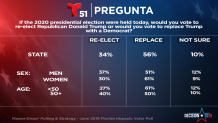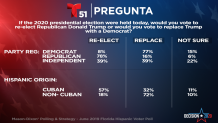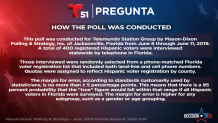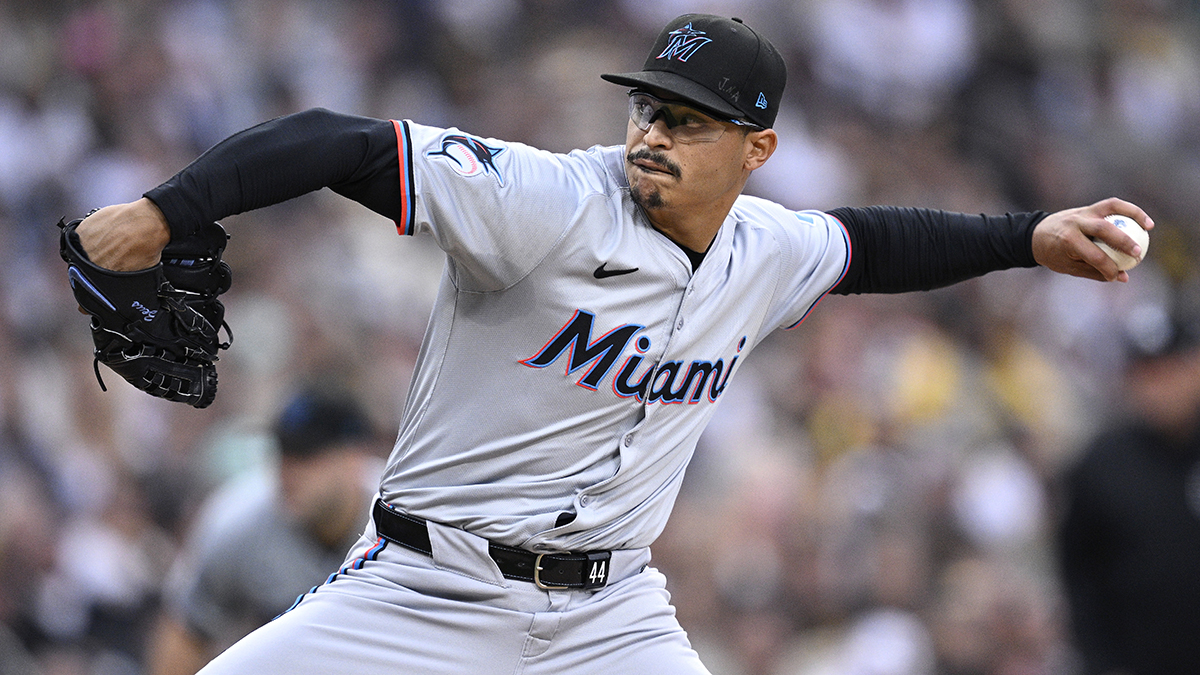The majority of Florida's Hispanic voters oppose the re-election of President Donald Trump and would vote for a Democratic candidate in the 2020 election, according to a new survey conducted for the Telemundo Station Group.
According to the exclusive poll conducted by the Mason-Dixon firm earlier this month, 56 percent of Hispanic voters said they would replace Trump, while 34 percent said they would re-elect and 10 percent said they were not sure.
The 400 registered Hispanic voters were interviewed by phone and asked "If the 2020 presidential election were held today, would you vote to re-elect Republican Donald Trump or would you vote to replace Trump with a Democrat?" The margin of error was +/- 5 percentage points.
Results were broken up into categories including gender, age, party affiliation and origin. Trump fared better among men, voters over 50, Republicans and voters of Cuban origin, while more women, voters under 50, Democrats and non-Cuban voters would vote to replace the president, according to the poll.
Among men, 51 percent would replace Trump, 37 percent would re-elect and 12 percent were not sure. For women, 61 percent would replace, 30 percent would re-elect and 9 percent were not sure.

For voters under 50, 61 percent would replace Trump, 27 percent would re-elect, and 12 percent said they were not sure. Among voters over 50, 50 percent would replace, 40 percent would reelect, and 10 percent were not sure.
Local
Not surprisingly, Republican and Democrat voters are on opposite ends of the Trump support spectrum, with 78 percent of Republicans in favor of re-election and 77 percent of Democrats in favor of replacing the president. Independent voters are an even split, with 39 percent in favor of re-election, 39 percent in favor of replacing and 22 percent not sure.
Trump enjoys strong support among Cuban voters, with 57 percent saying they would vote for his re-election as opposed to 32 percent who said they would replace him. But 72 percent of non-Cuban Hispanic voters are against Trump's re-election as opposed to only 18 percent who are in favor.

The poll was conducted from June 6 through June 11. Those interviewed were randomly selected from a phone-matched Florida voter registration list that included both land-line and cell phone numbers. Quotas were assigned to reflect Hispanic voter registration by county.




